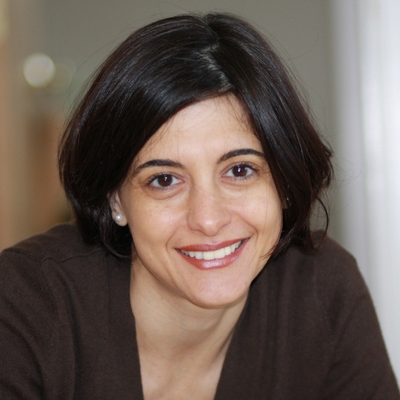
Research Topics
The main research focus of the Tumor Immunoregulation Section concerns the study of mechanisms of tumor progression and their impact on anti-tumor immune responses, with the goal of designing novel strategies to overcome tumor resistance to immunotherapy in advanced cancer. In this context, our laboratory has been studying the phenomenon of tumor cell plasticity, which refers to the ability of cancer cells to undergo reversible transitions of cell phenotype that ultimately promote therapy evasion. Tumor cell plasticity allows carcinoma cells to lose their epithelial features, while progressively gaining the expression of mesenchymal proteins such as vimentin, fibronectin, and several factors that help remodel the surrounding stroma, including TGF-β and the chemokine IL-8. In addition, tumor phenotypic changes are often associated with alterations in the extracellular matrix (ECM). Our overall hypothesis is that modulation of tumor cell plasticity and remodeling of the ECM could provide new avenues for improving anti-tumor immune responses in patients for whom available immunotherapies are ineffective. To this end, our laboratory has been exploring means to block TGF-β, IL-8, and the chemokine receptors, CXCR1 and CXCR2 in the context of various immunotherapies, including checkpoint inhibitors, TCR engagers, cytokines, and other immune modulatory agents.
Biography
Dr. Claudia Palena is a Senior Investigator and the Head of the Tumor Immunoregulation Section of the Center for Immuno-Oncology's Translational Research area, NCI, NIH, Bethesda. Dr. Palena received her Ph.D. degree in Biochemistry from the National University of Rosario, Rosario, Argentina. Dr. Palena is active in the area of tumor immunology and cancer immunotherapy. Her current research is focused on the development of novel immunotherapeutic approaches aimed at targeting critical events in tumor progression with the ultimate goal of designing vaccine platforms and combinatorial therapies for the prevention and/or treatment of metastases in human cancer.
Selected Publications
- Hamilton DH, Griner LM, Keller JM, Hu X, Southall N, Marugan J, David JM, Ferrer M, Palena C. Targeting Estrogen Receptor Signaling with Fulvestrant Enhances Immune and Chemotherapy-Mediated Cytotoxicity of Human Lung Cancer. Clin Cancer Res. 2016;22(24):6204-6216.
- Hamilton DH, Huang B, Fernando RI, Tsang KY, Palena C. WEE1 inhibition alleviates resistance to immune attack of tumor cells undergoing epithelial-mesenchymal transition. Cancer Res. 2014;74(9):2510-9.
- Palena C, Roselli M, Litzinger MT, Ferroni P, Costarelli L, Spila A, Cavaliere F, Huang B, Fernando RI, Hamilton DH, Jochems C, Tsang KY, Cheng Q, Lyerly HK, Schlom J, Guadagni F. Overexpression of the EMT driver brachyury in breast carcinomas: association with poor prognosis. J Natl Cancer Inst. 2014;106(5).
- Fernando RI, Castillo MD, Litzinger M, Hamilton DH, Palena C. IL-8 signaling plays a critical role in the epithelial-mesenchymal transition of human carcinoma cells. Cancer Res. 2011;71(15):5296-306.
- Fernando RI, Litzinger M, Trono P, Hamilton DH, Schlom J, Palena C. The T-box transcription factor Brachyury promotes epithelial-mesenchymal transition in human tumor cells. J Clin Invest. 2010;120(2):533-44.
Related Scientific Focus Areas
This page was last updated on Tuesday, January 6, 2026


